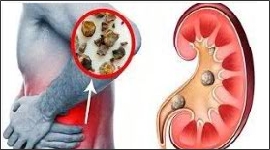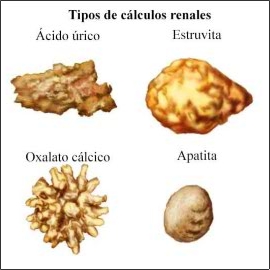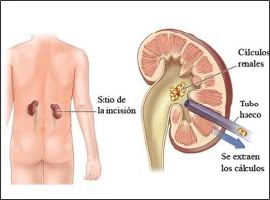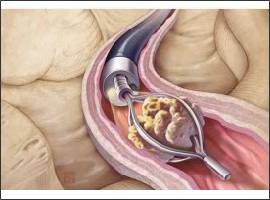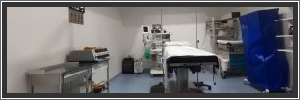Urinary lithiasis
It consists of the formation of stones (or stones) within the pathways that lead to urine, from the kidney to the urethra, through the ureter and bladder. The word calculus is used in medicine to name stones. There are six different subtypes of stones, the most frequent being calcium oxalate (more than 80%), followed by those of uric acid and phosphate.
|
|
|
|
|
|

